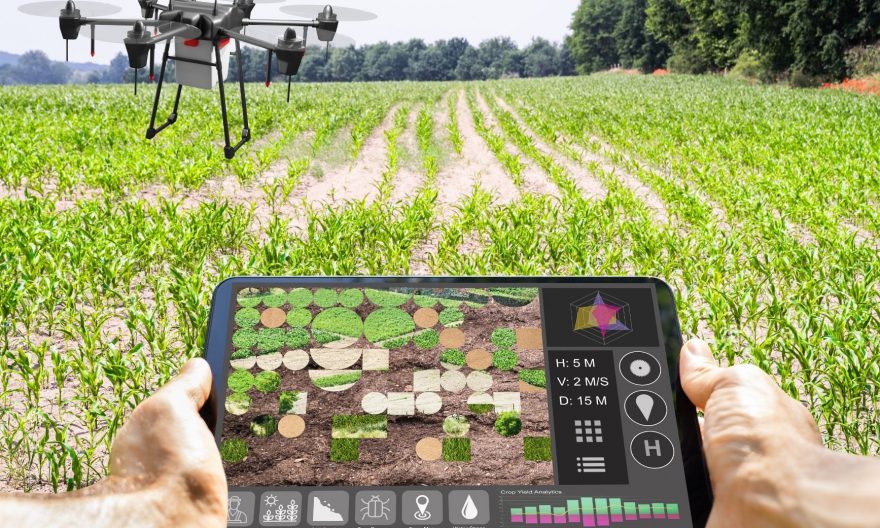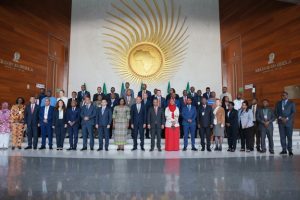
Alliance Microfinance launches a digital agricultural bank targeting urban agriculture in the capital Addis Ababa and its environs in partnership with Norwegian Church Aid, Bakken & Baeck, and East African Holding, according to the Technology and Innovation Institute of Ethiopia.
Agriculture is the main stay in Ethiopia, the major contributor to the national GDP (over 40 percent), export and employment as well.
According to the international finance corporation, an estimated one percent of bank lending goes to the agriculture sector in Africa. However, agriculture contributes to almost 18 percent of GDP across the continent.
As a further example, in the neighboring Kenya, 75 percent of the population makes living in agriculture while generating 24 percent of the country’s GDP, yet only 4 percent of total credit is supplied to the sector. There is also a dearth of account access among smallholder farmers, globally and in sub-Saharan Africa (SSA). Though it’s difficult to precisely quantify the gap, financial account ownership in developing economies tends to be lower in rural areas than in urban areas.
Furthermore, the unbanked tend to be clustered in poor households; globally, half of unbanked adults are in the poorest 20 percent of households, which is twice the percentage of the unbanked in the wealthiest 20 percent of households.
Given that there is a strong correlation between families living below the poverty line and working in agriculture globally, 16 it can be inferred that while smallholders are a diverse group, many remain unbanked. Farmers, especially smallholder farmers operating on plot size of one hectare (Ha) or less, and agribusinesses face chronic challenges of limited supply of financial services – including savings, credit, and insurance – as well as to agricultural information and other related support services. The agriculture sector is, however, a significant and in many cases untapped market for financial service providers.
By introducing new channels of communication, mechanisms of distributing and accessing financial products, as well as new sources of data and information, digital technology is changing the relationships between such providers and farmers or agribusinesses.
The fundamental characteristics of Digital Financial Service (DFS) products in agriculture remain the same as traditional financial products, but they are now available to rural customers via technology platforms enabled by the digital collection and integration of financial and non-financial data, which customers can access on a range of mobile or other digital devices. DFS offerings also leverage business and operating models have been shifted.
In view of this, the Alliance Microfinance (AMAS) has launch a digital agri-bank that targets urban farmers in Ethiopia in partnership with Norwegian Church Aid, Bakken & Baeck, and East African Holding.
The project is funded by NORAD (Norwegian Agency for Development Cooperation) and aims to provide farmers in the greater Addis Ababa urban areas with digital, financial services, and market integration through a digital agri-bank.
Alliance Microfinance AS (AMAS) is a non-profit limited liability company that operates within objectives of providing access to finance to low-income populations in developing countries with aim of supporting, setting up micro-enterprises. AMAZ will be the lead partner and grant manager for the project.
Bakken & Baeck is a Norwegian digital product developer and recently resigned Norway’s most popular payment platform, Vipps. Bakken & Baeck is expected to design relevant digital solutions for this project in Ethiopia.
Norwegian Chruch Aid, an entity that has more than 40 years long presence in Ethiopia is also part of this project.
The other partner of this project is East African Holding, a leading industrial conglomerate in Ethiopia. East Africa Holding will be responsible for developing logistics and distribution capabilities of farmers/producers that work with the conglomerate with the goal of ensuring access to markets.
The press statement by Alliance Microfinance AS (AMAS) said, “Through this unique partnership we are confident that the average income of the farmers reached will increase and that new jobs will be created.”
The project, supported by the Norwegian Agency for Development Cooperation (NORAD), is being implemented by the Digital Agricultural Bank to create digital financial services and market linkages for farmers in and around Addis Ababa.
Alliance Microfinance is a non-profit company that works to support small enterprises by expanding access to finance for low-income people in developing countries.
The company is the main shareholder of this project and will be responsible for its management. If we look at Bacon and Bacon, it is a digital product provider that recently introduced the popular payment system Vipps in Norway. The company will also play a role in bringing digital solutions to the project.
Another part of this partnership is East Africa Holdings, one of the leading industrialists in Ethiopia.
The head of the Alliance, Microfinance, said the joint venture will not only increase the income of the farmers but also create new jobs.
BY HAFTU GEBREZGABIHER
THE ETHIOPIAN HERALD OCTOBER 1/2021





